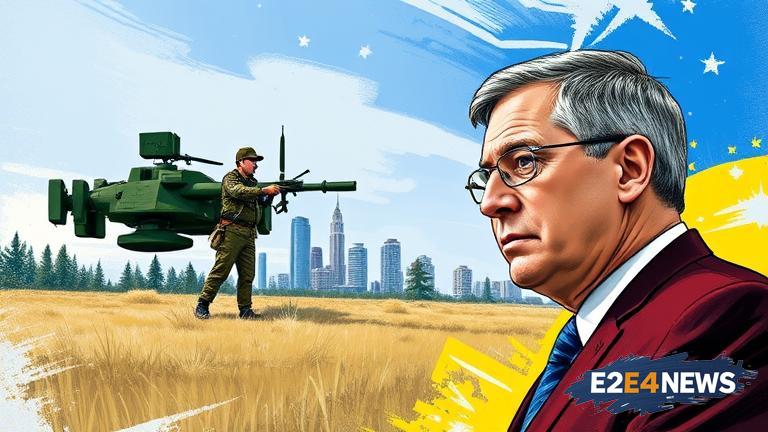Mark Carney, the former governor of the Bank of England, has sparked a national debate in Canada with his recent comments about sending troops to Ukraine. In a cautious statement, Carney expressed his reservations about deploying Canadian military personnel to the war-torn country. The comments have been met with a mix of reactions, with some hailing Carney’s prudent approach and others criticizing his lack of decisiveness. The situation in Ukraine has been deteriorating rapidly, with ongoing conflict between Ukrainian forces and Russian-backed separatists. The international community has been calling for increased support for Ukraine, including military aid. Canada has been a key player in providing humanitarian and financial assistance to Ukraine, but the question of military involvement remains a contentious issue. Carney’s comments have highlighted the complexities of the situation and the need for careful consideration. The Canadian government has been weighing its options, with some officials advocating for a more robust military presence in Ukraine. However, others have expressed concerns about the potential risks and consequences of such a move. The debate has also sparked a wider discussion about Canada’s role in global affairs and its commitment to international security. As the situation in Ukraine continues to unfold, Canada’s decision on military involvement will have significant implications for the country’s foreign policy and its relationships with other nations. The Canadian public is divided on the issue, with some calling for increased military support for Ukraine and others opposing any involvement. The government will need to carefully balance these competing views and make a decision that aligns with Canada’s values and interests. In recent years, Canada has been actively engaged in various international missions, including peacekeeping and training operations. However, the situation in Ukraine presents a unique set of challenges and complexities. The conflict has resulted in significant human suffering, with thousands of civilians caught in the crossfire. The international community has a moral obligation to act, but the question of how to intervene effectively remains a difficult one. Carney’s comments have underscored the need for a thoughtful and nuanced approach, one that takes into account the potential risks and benefits of military involvement. As Canada navigates this complex issue, it will be important to consider the perspectives of all stakeholders, including Ukrainian officials, international partners, and the Canadian public. The decision on military involvement will have far-reaching consequences, not only for Ukraine but also for Canada’s reputation as a global leader. In the coming weeks and months, the Canadian government will need to engage in careful diplomacy and strategic planning to ensure that its response to the crisis in Ukraine is effective and responsible. The situation demands a coordinated and multilateral approach, one that brings together nations and international organizations to address the root causes of the conflict. By working together, the global community can help to bring peace and stability to Ukraine, and promote a more secure and prosperous world. The Canadian government’s decision on military involvement will be a critical factor in determining the outcome of this effort. As the world watches, Canada has an opportunity to demonstrate its commitment to international security and its values of peace, justice, and human rights. The coming days and weeks will be crucial in shaping the course of events in Ukraine, and Canada’s role in the crisis will be closely scrutinized by the international community.
